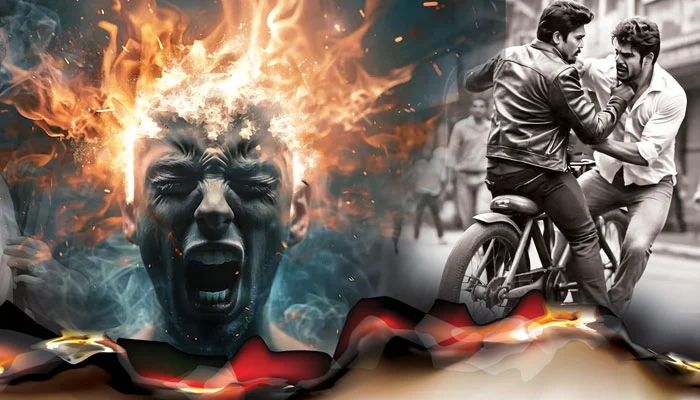
Ramadan is often described as a month of blessings, mercy, and self-restraint. It is said that during this sacred time, the devils are chained. But what about the human devils—the ones more cunning, dangerous, and unpredictable than any supernatural entity? The surge in crime, especially murders, during Ramadan proves that while the unseen devils may be locked away, the human ones roam free.
Over the past few years, there has been a disturbing rise in violent crimes during Ramadan. This year, the motives behind some murders are shocking: a dispute over a dog, a noise complaint due to wall plastering, the removal of a person from a WhatsApp group, a son killing his mother and siblings over a minor disagreement, and entire families wiped out due to property disputes. Are these reasons so grave that they justify taking a life? Has human life become so worthless that it can be sacrificed for a trivial argument, a few rupees, or an inflated ego?
As a society, have we grown indifferent to violence, or have our circumstances made us so impatient that we cannot tolerate even the slightest disagreement? Every religion and moral code teaches patience and kindness, but Islam particularly emphasizes compassion, respect for others' lives, and the sanctity of human dignity. It equates the murder of a single person with the murder of all humanity. Yet, we see its followers waging personal wars against each other over petty conflicts.
Dr. Asad Imtiaz, who often records thought-provoking incidents in his diary, once shared an experience from his clinic. One day, amidst a hectic schedule, he barely had time for lunch or prayer. Just as he took a break for Asr prayer, an angry voice from outside his office interrupted him—someone was arguing with his assistant, issuing threats.
At that moment, his ego flared up. "This person is disturbing my prayer? Doesn’t he know who I am?" A part of him wanted to storm outside, assert his authority, and refuse treatment to the disruptive patient. Had he done so, the situation could have escalated into a full-blown conflict, with both parties walking away bitter and resentful.
Instead, he chose a different path.
When he returned from ablution, his assistant explained the situation. Instead of reacting with anger, Dr. Asad asked for the young man to be brought inside. As the furious patient entered, Dr. Asad extended his hand with a smile. The tension on the man's face eased immediately.
"Who is the patient?" he asked gently.
"My mother," the young man replied.
"Bring her in. But first, let’s have a meal together," the doctor suggested. "You must not have eaten either. We can discuss her condition over food and then proceed with the checkup."
The man's anger melted away. Embarrassed, he insisted that the doctor eat first and offered a special dinner invitation as an apology.
This small act of patience transformed what could have been a heated argument into an opportunity for connection and understanding.
The Quran describes the righteous as those who spend in both ease and hardship, who suppress their anger and forgive others (Surah Aal-e-Imran: 134). The ability to control one's temper is not just a moral teaching—it makes life easier.
The first test of ego was given to the angels when they were commanded to bow before Adam. They set aside their pride and obeyed, but Iblis refused, driven by his arrogance. It was his ego that led to his downfall.
Perhaps if we all paused for a moment before reacting, if we set aside our egos like Dr. Asad did, our lives would become much simpler. Instead of taking lives, we could create ease for one another. Instead of making society more volatile, we could make it more peaceful.
Let us commit to thinking before reacting, to choosing patience over violence, and to ensuring that anger never drives us to irreversible consequences. Because, in the end, what is more important—winning an argument or preserving a life?